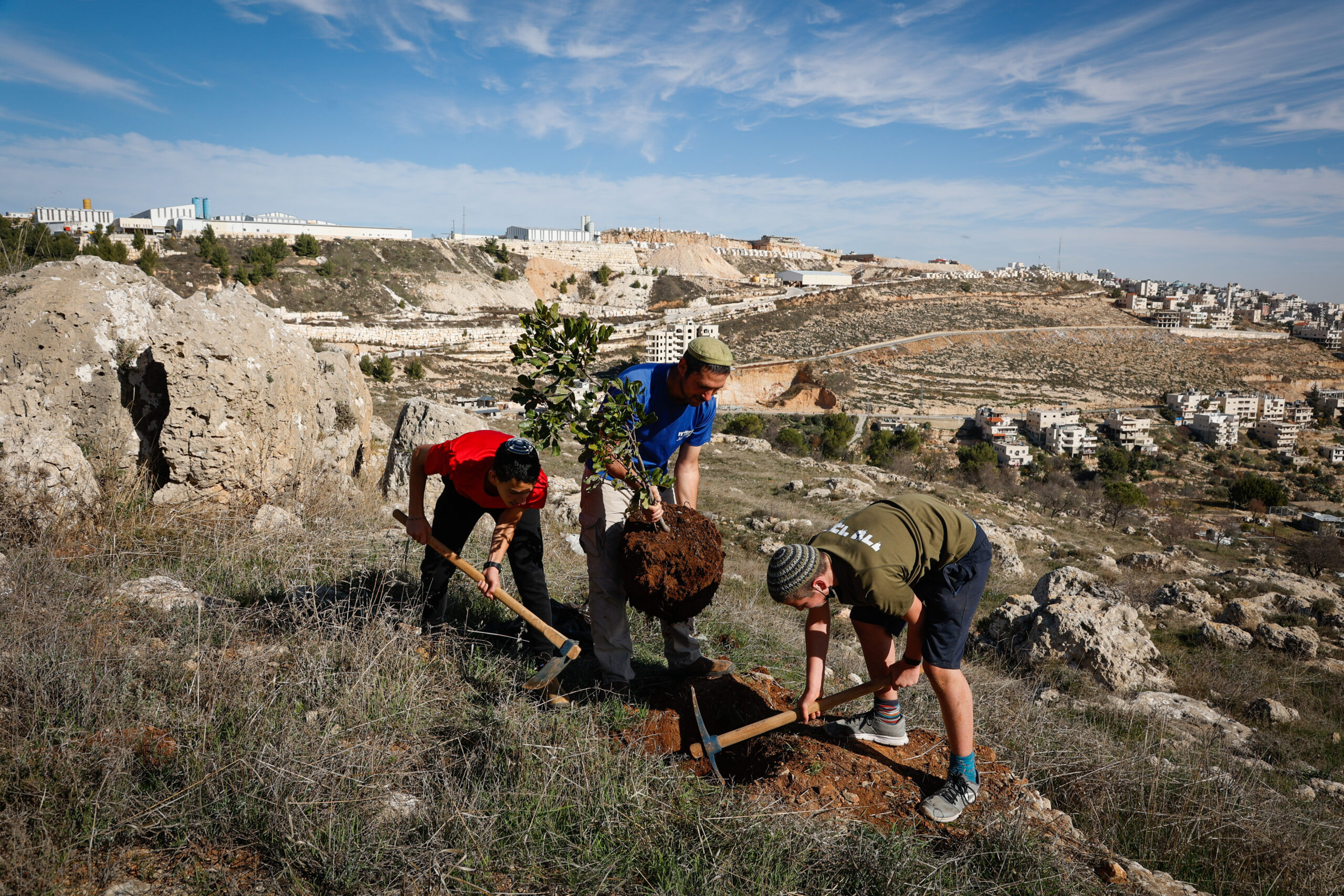For years, critics and international leaders have repeated the accusation that Israel is “illegally occupying Palestinian land” in the so-called West Bank and that peace depends on carving out a Palestinian state there. But the truth is clear: Judea and Samaria, their real and ancient names, are the historical, biblical, and legal heartland of the Jewish people. They were promised by God, affirmed by international law, and restored to Israel in a defensive war. Calling them “occupied” is not only false; it distorts thousands of years of Jewish history.
The Claim: “Israel Is Occupying Palestinian Land”
From the UN to Western capitals, global leaders continue to insist that Israel must withdraw from Judea and Samaria to make way for a Palestinian state. French President Emmanuel Macron, UN Secretary-General Antonio Guterres, and the Arab League all renewed this demand in 2024 and 2025, promoting what they call a “two-state solution” with East Jerusalem as the Palestinian capital.
This argument assumes two falsehoods: first, that a Palestinian state ever existed there, and second, that the “West Bank” was stolen by Israel in 1967. In reality, the name “West Bank” did not exist until Jordan invaded and illegally annexed the territory in 1948, driving out every Jewish family that had lived there for generations. No sovereign Palestinian government ever ruled it, and no international body ever recognized Jordan’s claim.
The Historical Background: What the World Has Forgotten
Judea and Samaria have been the heart of Jewish identity for more than 3,000 years. This is where Abraham walked, where King David ruled, and where the prophets spoke. Modern international law recognized that truth.
The 1917 Balfour Declaration and the 1920 San Remo Conference affirmed the Jewish right to re-establish their homeland “throughout the land of Palestine.” The League of Nations Mandate for Palestine in 1922 enshrined that right, acknowledging “the historical connection of the Jewish people with Palestine.” These documents were never revoked. Under Article 80 of the UN Charter, those rights remain in force today.
Jordan’s 1948 occupation was condemned and unrecognized by nearly all nations. In 1967, after Jordan joined Egypt and Syria in attacking Israel, the IDF liberated Judea and Samaria in a defensive war. UN Resolution 242 deliberately avoided calling for full withdrawal, recognizing Israel’s right to “secure and recognized boundaries.”
The Truth: Israel’s Legal and Moral Claim
According to Lt.-Col. Maurice Hirsch of the Jerusalem Center for Public Affairs, Israel’s rights in Judea and Samaria “are grounded in binding post–World War I treaties and remain valid under international law.” These rights were inherited from the British Mandate, not seized by force.
Attempts to divide this land have only brought bloodshed. As Jerusalem Post columnist Neville Berman wrote, “A two-state solution is a bad idea. It might not solve the problem at all but could actually lead to a much wider conflict.” Terror groups such as Hamas and Islamic Jihad have already declared that any Israeli withdrawal would be viewed as weakness, inviting Iranian and Russian-backed proxies into Israel’s heartland.
Rabbi Tuly Weisz said, “Everybody has seen what Gaza led to. And God forbid if there was a Palestinian state in Judea and Samaria, October 7th would happen over and over again.”
Life Under Israeli Sovereignty: Prosperity, Not Apartheid
Since Israel regained control, Judea and Samaria have flourished. Israeli roads, hospitals, and security networks have turned a war zone into one of the region’s most stable and prosperous areas. As Jewish News Syndicate reported in July 2025, the Netanyahu government has expanded infrastructure, created jobs, and attracted foreign investment, proving that Israeli sovereignty brings progress, not oppression.
Meanwhile, areas under Palestinian Authority control remain plagued by corruption, unemployment, and internal violence. When Israel governs, both Jews and Arabs benefit.
Even in Washington, reality is catching up. In 2024, Senator Tom Cotton introduced a bill requiring the U.S. government to replace “West Bank” with “Judea and Samaria” in all federal documents, recognizing the region’s true historical identity.
The World’s Two-State Illusion
Despite repeated failures from Oslo to Gaza, the international community still clings to the illusion that dividing the land will bring peace. Yet a 2025 Gallup poll found that only 21 percent of Israelis and 23 percent of Palestinians believe permanent peace will ever be achieved through such a deal. The people living there understand what diplomats refuse to see: peace cannot be built on lies.
Pastor John Hagee summarized it best: “The Jewish people do not occupy the land. They own the land.”
The Bottom Line: Judea and Samaria Belong to Israel
Judea and Samaria are not bargaining chips in a political game. They are the birthplace of the Jewish nation and the backbone of its security. Dividing them would reward terror, weaken Israel, and destabilize the Middle East. Upholding Jewish sovereignty here is not just a legal right; it is a moral obligation to protect the land promised to Abraham and defended by generations of Israelis.




